Jackie Chan
 |
| Jackie Chan |
Introduction
Chan Kong-sang (About this soundlisten) SBS, MBE, PMW(Chinese: 陳港生; conceived 7 April 1954), referred to expertly as Jackie Chan, is a Hong Kong entertainer and military craftsman known for his droll aerobatic battling style, comic planning, and creative tricks, which he ordinarily performs himself. He has prepared in Wushu and Hapkido and has been acting since the 1960s, acting in excess of 150 movies. He is perhaps the most famous activity film star ever.
Chan is quite possibly the most unmistakable and powerful realistic character on the planet, acquiring a far-reaching worldwide continuing in both the Eastern and Western halves of the globe, and has gotten stars on the Hong Kong Avenue of Stars and the Hollywood Walk of Fame. He has been referred to in different pop melodies, kid's shows, and computer games. He is an operatically prepared entertainer and is additionally a Cantopop and Mandopop star, having delivered various collections and sung large numbers of the signature melodies for the movies in which he has featured. He is likewise a universally referred to altruist and has been named as one of the main 10 most magnanimous big names by Forbes magazine. In 2004, film researcher Andrew Willis expressed that Chan was maybe the "most perceived star on the planet". In 2015, Forbes assessed his total assets to be $350 million, and starting in 2016, he was the second-most generously compensated entertainer on the planet.
Early Life
Chan was brought into the world on 7 April 1954 in Hong Kong as Chan Kong-sang (Chinese: 陳港生; lit. 'brought into the world in Hong Kong') to Charles and Lee-Lee Chan, evacuees from the Chinese Civil War. His folks were so helpless they needed to get cash from companions to pay the specialist. His folks nicknamed him Pao-Pao (Chinese: 炮炮; lit. 'Cannonball') on the grounds that the fiery kid was continually moving near. His folks worked for the French minister in Hong Kong, and Chan spent his early stages inside the grounds of the representative's home in the Victoria Peak area.
Chan went to the Nah-Hwa Primary School on Hong Kong Island, where he bombed his first year, after which his folks pulled out him from the school. In 1960, his dad emigrated to Canberra, Australia to fill in as the head cook for the American government office, and Chan was shipped off the China Drama Academy, Chan prepared thoroughly for the following decade, dominating in combative techniques and trapeze artistry. He in the long run turned out to be essential for the Seven Little Fortunes, an exhibition bunch comprised of the school's best understudies, acquiring the stage name Yuen Lo (元樓) in tribute to his lord. Chan turned out to be dear companions with individual gathering individuals Sammo Hung and Yuen Biao, and they three later got known as the Three Brothers or Three Dragons. Subsequent to entering the entertainment world, Chan alongside Sammo Hung got the chance to prepare in hapkido under the terrific expert Jin Pal Kim, and Chan in the end achieved a dark belt.
Chan joined his folks in Canberra, Australia in 1976, where he momentarily went to Dickson College and filled in as a development laborer. An individual manufacturer named Jack encouraged Chan, consequently procuring Chan the epithet of "Little Jack," later abbreviated to "Jackie", which has stayed with him from that point onward. In the last part of the 1990s, Chan changed his Chinese name to Fong Si-lung (房仕龍), since his dad's unique family name was Fong.
Film Carrer
1962–1975: Early appearances
He started his movie vocation by showing up in little parts at five years old as a kid entertainer. At age eight, he showed up with a portion of his individual "Little Fortunes" in the film Big and Little Wong Tin Bar (1962) with Li-Hua playing his mom. The next year, the youthful entertainer showed up in additional items of The Love Eterne (1963) and had a little part in King Hu's 1966 film Come Drink with Me. In 1971, after an appearance as an extra in another kung fu film, A Touch of Zen, Chan was endorsed to Chu Mu's Great Earth Film Company.
1976–1980: Early driving jobs
In 1976, Jackie Chan got a message from Willie Chan, a filmmaker in the Hong Kong entertainment world who had been dazzled with Jackie's trick work. Willie Chan offered him an acting job in a movie coordinated by Lo Wei. Lo saw Chan's presentation in the John Woo film Hand of Death (1976) and wanted to display him after Bruce Lee with the film New Fist of Fury. His stage name was changed to Sing Lung (Chinese: 成龍, likewise deciphered as Cheng Long, in a real sense "become the mythical serpent") to accentuate his comparability to Bruce Lee, whose stage name signified "Little Dragon" in Chinese. The film was fruitless in light of the fact that Chan was not acclimated with Lee's combative techniques style. In spite of the film's disappointment, Lo Wei kept delivering films with comparative subjects, yet with little improvement in the cinematic world.
Chan's first significant advancement was the 1978 film Snake in the Eagle's Shadow, shot while he was lent to Seasonal Film Corporation under a two-picture bargain. The film set up the comedic kung fu type and demonstrated invigorating to the Hong Kong crowd. That very year, Chan at that point featured in Drunken Master, which at long last pushed him to standard achievement.
Upon Chan's re-visitation of Lo Wei's studio, Lo attempted to recreate the comedic approach of Drunken Master, delivering and furthermore showed new highlights at the time with Jackie. He likewise offered Chan the chance to make his first time at the helm in The Fearless Hyena. At the point when Willie Chan left the organization, he encouraged Jackie to choose for himself whether to remain with Lo Wei. During the shooting of Fearless Hyena Part II, Chan broke his agreement and joined Golden Harvest, provoking Lo to coerce Chan with ternions, censuring Willie for his star's takeoff. The question was settled with the assistance of individual entertainer and chief Jimmy Wang Yu, permitting Chan to remain with Golden Harvest.
1980–1987: Success in the activity parody type
Willie Chan turned into Jackie's own supervisor and firm companion and remained so for more than 30 years. He was instrumental in dispatching Chan's global profession, starting with his initial introductions to the American entertainment world during the 1980s. Chan at that point assumed a minor part in the 1981 film The Cannonball Run, which earned over US$100 million worldwide Despite being to a great extent disregarded by North American crowds for set up American entertainers, for example, Burt Reynolds, Chan was dazzled by the outtakes appeared at the end credits, moving him to remember similar gadget for his future movies.
After the business disappointment of The Protector in 1985, Chan briefly deserted his endeavors to break into the US market, returning his concentration to Hong Kong films.
Back in Hong Kong, Chan's movies started to contact a bigger crowd in East Asia, with early achievements in the rewarding Japanese market including Drunken Master, The Young Master (1980), and Dragon Lord (1982). The Young Master proceeded to beat past film industry records set by Bruce Lee and set up Chan as Hong Kong film's top star. With Dragon Lord, he started exploring different avenues regarding elaborate trick activity successions, including the last battle scene where he performs different tricks, including one where he does a reverse somersault off a space and tumbles to the lower ground.
Chan delivered various activity parody films with his drama school companions Sammo Hung and Yuen Biao. The three co-featured together without precedent for 1983 in Project A, which presented a risky trick-driven style of combative techniques that won it the Best Action Design Award at the third yearly Hong Kong Film Awards. Over the accompanying two years, the "Three Brothers" showed up in Wheels on Meals and the first Lucky Stars set of three. In 1985, Chan made the main Police Story film, a wrongdoing activity film in which Chan played out various risky tricks.
1988–1998:
In 1988, Chan featured close by Sammo Hung and Yuen Biao once and for all to date in the film Dragons Forever. Hung co-coordinated with Corey Yuen and the scalawag in the film was played by Yuen Wah, both of whom were individual alumni of the China Drama Academy.
In the last part of the 1980s and mid-1990s, Chan featured in various effective spin-offs starting with Project A Part II and Police Story 2, which won the honor for Best Action Choreography at the 1989 Hong Kong Film Awards. This was trailed by Armor of God II: Operation Condor, and Police Story 3: Super Cop, for which Chan won the Best Actor Award at the 1993 Golden Horse Film Festival. In 1994, Chan repeated his part as Wong Fei-hung in Drunken Master II, which was recorded in Time Magazine's All-Time 100 Movies. Another spin-off, Police Story 4: First Strike, brought more honors and homegrown film industry accomplishment for Chan however didn't charge also in unfamiliar business sectors.
Up until January 1995, his movies earned over HK$500 million (US$70 million) in Hong Kong, ¥39 billion (US$489 million) in Japan, 11.5 million film industry affirmations in France, and 9.9 million film industry confirmations in Germany. In spite of his achievement in Asia and Europe, he was not fruitful in North America, where he had just two wide deliveries as the main entertainer, The Big Brawl and The Protector, earning US$9.51 million (US$32 million adapted to swelling).
Chan revived his Hollywood desires during the 1990s, however rejected early proposals to play scalawags in Hollywood movies to try not to be pigeonholed in future jobs. For instance, Sylvester Stallone offered him the part of Simon Phoenix, a criminal in the cutting edge film Demolition Man. Chan declined and the job was taken by Wesley Snipes.
Chan at long last prevailing with regards to setting up traction in the North American market in 1995 with an overall arrival of Rumble in the Bronx, accomplishing a clique continuing in the United States that was uncommon for Hong Kong famous actors. Chan's first tremendous blockbuster achievement came when he co-featured with Chris Tucker in the 1998 mate cop activity parody Rush Hour, netting US$130 million in the United States alone. This film made him a Hollywood star, after which he composed his collection of memoirs in a joint effort with Jeff Yang entitled I Am Jackie Chan.
1999–2007: Fame in Hollywood and sensation
In 1998, Chan delivered his last film for Golden Harvest, Who Am I?. In the wake of leaving Golden Harvest in 1999, he created and featured close by Shu Qi in Gorgeous, a lighthearted comedy that zeroed in on close-to-home connections and highlighted a couple of hand-to-hand fighting arrangements. In spite of the fact that Chan had left Golden Harvest in 1999, the organization proceeded to deliver and circulate for two of his movies, Gorgeous (1999) and The Accidental Spy (2001). Chan at that point made a PlayStation game in 2000 called Jackie Chan Stuntmaster, to which he loaned his voice and played out the movement catch. He proceeded with his Hollywood achievement in 2000 when he collaborated with Owen Wilson in the Western activity satire Shanghai Noon. A spin-off, Shanghai Knights continued in 2003 and furthermore included his first on-screen battle scene with Donnie Yen. He rejoined with Chris Tucker for Rush Hour 2 (2001), which was a much greater accomplishment than the first, earning $347 million around the world. Chan tried different things with the utilization of enhancements and wirework for the battle scenes in his next two Hollywood movies, The Tuxedo (2002) and The Medallion (2003), which were not as fruitful basically or economically. In 2004, he collaborated with Steve Coogan in Around the World in 80 Days, inexactly dependent on Jules Verne's epic of a similar name. In 2004, film researcher Andrew Willis expressed that Chan was "maybe" the "most perceived star on the planet".
In spite of the accomplishment of the Rush Hour and Shanghai Noon films, Chan got baffled with Hollywood over the restricted scope of jobs and absence of power over the filmmaking cycle. Because of Golden Harvest's withdrawal from the entertainment world in 2003, Chan began his own film creation organization, JCE Movies Limited (Jackie Chan Emperor Movies Limited) in a relationship with Emperor Multimedia Group (EMG). His movies have since highlighted an expanding number of sensational scenes while proceeding to prevail in the cinema world; models incorporate New Police Story (2004), The Myth (2005), and the hit film Rob-B-Hood (2006).
Chan's next discharge was the third portion in the Rush Hour film arrangement: Rush Hour 3 in August 2007. It netted US$255 million. Be that as it may, it was a mistake in Hong Kong, netting just HK$3.5 million during its initial end of the week.
2008–present:
The shooting of The Forbidden Kingdom, Chan's first onscreen cooperation with individual Chinese entertainer Jet Li, was finished on 24 August 2007 and the film was delivered in April 2008. The film included hefty utilization of impacts and wires. Chan voiced Master Monkey in Kung Fu Panda (delivered in June 2008), showing up with Jack Black, Dustin Hoffman, and Angelina Jolie. What's more, he has helped Anthony Szeto in a warning limit with respect to the author's chief film Wushu, delivered on 1 May 2008. The film stars Sammo Hung and Wang Wenjie as father and child.
In November 2007, Chan started shooting the Shinjuku Incident, a sensational job including no combative techniques arrangements with chief Derek Yee, which sees Chan assume the job of a Chinese migrant in Japan. The film was delivered on 2 April 2009. As indicated by his blog, Chan talked about his desire to coordinate a film in the wake of finishing the Shinjuku Incident, something he has not accomplished for various years. The film was required to be the third in the Armor of God arrangement and had a functioning title of Armor of God III: Chinese Zodiac. The film was delivered on 12 December 2012. Because the Screen Actors Guild didn't picket, Chan began shooting his next Hollywood film The Spy Next Door toward the finish of October in New Mexico. In The Spy Next Door, Chan plays a spy whose cover is blown when he cares for the offspring of his better half. In Little Big Soldier, Chan stars close by Leehom Wang as a trooper in the Warring States time frame in China. He is the solitary overcomer of his military and should bring a caught aggressor Leehom Wang to the capital of his area.
In 2010, he featured with Jaden Smith in The Karate Kid, a revamp of the 1984 original. This was Chan's first emotional American film. He plays Mr. Han, a kung fu expert, and janitor who instructs Jaden Smith's character kung fu so he can shield himself from school menaces. His job in The Karate Kid won him the Favorite Buttkicker grant at the Nickelodeon Kids' Choice Awards in 2011. In Chan's next film, Shaolin, he assumes a supporting part as a cook of a sanctuary rather than one of the significant characters.
His 100th film, 1911, was delivered on 26 September 2011. Chan was the co-chief, leader maker, and lead star of the film. While Chan has coordinated more than ten movies over his vocation, this was his first executive work since Who Am I? in 1998. 1911 debuted in North America on 14 October.
While at the 2012 Cannes Film Festival, Chan reported that he was resigning from activity films referring to the that he was becoming excessively old for the class. He later explained that he would not be totally resigning from activity films, yet would perform fewer tricks and deal with his body more.
In 2013, Chan featured in Police Story 2013, a reboot of the Police Story establishment coordinated by Ding Sheng, and it was delivered in China toward the finish of 2013. Chan's next film Dragon Blade was delivered in mid-2015 and co-featured Hollywood entertainers, John Cusack, and Adrien Brody. In mid-2017, Chan's new film named Kung Fu Yoga, a Chinese-Indian task, which additionally featured Disha Patani, Sonu Sood, and Amyra Dastur was delivered. The movie rejoined Chan with chief Stanley Tong, who coordinated some of Chan's movies during the 1990s. Upon discharge, the film was an immense accomplishment in the cinematic world and turned into the fifth most elevated netting film in China, one month after its delivery. In 2016 he collaborated with Johnny Knoxville and featured in his own creation Skiptrace.
Chan featured in the 2016 activity parody Railroad Tigers and the 2017 activity spine chiller The Foreigner, an Anglo-Chinese creation. He likewise stars in the sci-fi film Bleeding Steel. In 2021, he will show up in Project X-Traction close by John Cena.
His movies had altogether netted HK$1.14 billion (US$145 million) in the Hong Kong film industry up until 2010, over US$72 million in South Korea somewhere in the range of 1991 and 2010, and ¥48.4 billion (US$607 million) in Japan up until 2012. Starting in 2018, his movies have netted US$1.84 billion (more than US$2.44 billion adapted to swelling) in the United States and Canada, CN¥8.6 billion (US$1.24 billion) in China, 20 million film industry confirmations in France, and over 27.3 million affirmations in Germany, Spain, and Italy. Starting in 2018, his movies have earned more than US$5 billion in the overall film industry.
Music
Chan had vocal exercises while at the Peking Opera School in his youth. He started delivering records expertly during the 1980s and has proceeded to turn into an effective artist in Hong Kong and Asia. He has delivered 20 collections since 1984 and has performed vocals in Cantonese, Mandarin, Japanese, Taiwanese, and English. He frequently sings the signature melodies of his movies, which play over the end credits. Chan's first melodic chronicle was "Kung Fu Fighting Man", the signature tune played over the end credits of The Young Master (1980). In any event 10 of these chronicles have been delivered on soundtrack collections for the movies. His Cantonese tune "Story of a Hero" (英雄故事) (signature tune of Police Story) was chosen by the Royal Hong Kong Police and consolidated into their enrollment notice in 1994.
Chan voiced the personality of Shang in the Chinese arrival of the Walt Disney vivified include Mulan (1998). He additionally played out the melody "I'll Make a Man Out of You", for the film's soundtrack. For the US discharge, the talking voice was performed by B.D. Wong and the performing voice were finished by Donny Osmond. He likewise worked together with Ani DiFranco on "Extraordinary".
In 2007, Chan recorded and delivered "We Are Ready", the authority's one-year commencement tune to the 2008 Summer Olympics which he performed at a service denoting the one-year commencement to the 2008 Summer Paralympics. Chan additionally delivered one of the two authority Olympics collections, Official Album for the Beijing 2008 Olympic Games – Jackie Chan's Version, which included various uncommon visitor appearances. Chan performed "Hard to Say Goodbye" alongside Andy Lau, Liu Huan, and Wakin (Emil) Chau, at the 2008 Summer Olympics shutting service.
Chan got his privileged Doctor of Social Science certificate in 1996 from the Hong Kong Baptist University. In 2009, he got another privileged doctorate from the University of Cambodia and has additionally been granted a privileged residency by the Savannah College of Art and Design in Hong Kong in 2008.
Chan is as of now an employee of the School of Hotel and Tourism Management at the Hong Kong Polytechnic University.
Awards and winner
American Choreography Awards 2002 Innovator Award N/A Won
ASEAN International Film Festival and Awards 2015 ASEAN Inspirati
N/A Won
Asia Pacific Film Festival 1993 Lifetime Achievement Award N/A Won
2010 Outstanding Achievement Award N/A Won
Behind the Voice Actors Awards 2012 Best Voice Ensemble in a component film, Kung Fu Panda 2 Won
Beijing Student Film Festival 2005 Best Actor New Police Story Nominated
2013 Best Actor Guns and Roses Nominated
Blockbuster Entertainment Awards 1999 Favorite Duo – Action/Adventure Rush Hour Won
2001 Favorite Action Team Shanghai Noon Nominated
Britannia Awards 2019 Albert R. Broccoli Britannia Award Awarded for Worldwide Contribution to Entertainment Won
Cinequest Film Festival 1998 Maverick Spirit Award N/A Won
Daytime Emmy Awards 2002 Outstanding Performer in an Animated Program Jackie Chan Adventures Nominated
Fant-Asia Film Festival 1997 Best Asian Film Drunken Master II Won
Brilliant Bauhinia Awards 1999 Best Actor Who Am I? Nominated
2005 Best Actor New Police Story Nominated
Brilliant Horse Film Festival 1984 Best Leading Actor Project A Nominated
1987 Best Director Project A Part II Nominated
Unique Award N/A Won
1989 Best Leading Actor Miracles Nominated
1991 Special Achievement Award N/A Won
1993 Best Leading Actor Crime Story Won
Best Action Choreography Crime Story Nominated
1995 Best Action Choreography Rumble in the Bronx Nominated
1999 Best Action Choreography Gorgeous Nominated
2001 Best Action Choreography The Accidental Spy Nominated
2013 Best Action Choreography Chinese Zodiac Won
Brilliant Phoenix Awards 1993 Outstanding Contribution Award N/A Won
2005 Outstanding Contribution Award N/A Won
Brilliant Rooster Awards 2005 Best Actor New Police Story Won
Hollywood Film Festival 1999 Actor of the Year N/A Won
Hong Kong Film Awards 1983 Best Action Choreography Dragon Lord Nominated
1985 Best Actor Project A Nominated
1986 Best Director Police Story Nominated
Best Actor Heart of Dragon Nominated
Best Actor Police Story Nominated
1989 Best Picture Rogue Won
1990 Best Actor Miracles Nominated
Best Action Choreography Miracles Won
1993 Best Actor Police Story 3 Nominated
1994 Best Actor Crime Story Nominated
Best Action Choreography Crime Story Nominated
1996 Best Action Choreography Rumble in the Bronx Won
1999 Best Action Choreography Who Am I? Won
2000 Best Action Choreography Gorgeous Nominated
2005 Professional Achievement Award N/A Won
Best Actor New Police Story Nominated
Best Action Choreography New Police Story Won
2006 Best Original Film Song The Myth Nominated
Best Action Choreography The Myth Nominated
2007 Best Action Choreography Rob-B-Hood Nominated
2013 Best Action Choreography Chinese Zodiac Won
2016 Best Action Choreography Dragon Blade Nominated
Huading Award 2012 Outstanding Achievement N/A Won
2013 Best Actor in a Motion picture Chinese Zodiac Nominated
2015 Best Action Choreography for movement pictures Dragon Blade Won
2018 Best Actor in a Motion picture The Foreigner Nominated
Hundred Flowers Awards 2006 Best Actor New Police Story Nominated
2014 Best Actor Chinese Zodiac Nominated
Child's Choice Awards 2002 Favorite Male Action Hero Rush Hour 2 Won
Most loved Male Movie Star Rush Hour 2 Won
2003 Favorite Male Butt Kicker The Tuxedo Won
Most loved Movie Actor The Tuxedo Nominated
2011 Favorite Butt Kicker The Karate Kid Won
Macau International Movie Festival 2013 Golden Lotus Awards for Best Director Chinese Zodiac Won
Brilliant Lotus Awards for Best Picture Chinese Zodiac Nominated
MTV Movie Awards 1995 Lifetime Achievement Award N/A Won
1996 Best Fight Rumble in the Bronx Nominated
1997 Best Fight Police Story 4: First Strike Nominated
1999 Best Fight (imparted to Chris Tucker) Rush Hour Nominated
Best On-Screen Duo (imparted to Chris Tucker) Rush Hour Won
2002 Best On-Screen Team (imparted to Chris Tucker) Rush Hour 2 Nominated
Best Fight (imparted to Chris Tucker) Rush Hour 2 Won
2003 Best On-Screen Team (imparted to Owen Wilson) Shanghai Knights Nominated
2008 Best Fight (imparted to Chris Tucker and Sun Mingming) Rush Hour 3 Nominated
Montreal World Film Festival 2001 Grand Prix des Amériques N/A Won
Online Film and Television Awards 2019 OFTA Film Hall of Fame N/A Won
Individuals' Choice Awards 2008 Favorite on Screen Match-up (imparted to Chris Tucker) Rush Hour 3 Nominated
2011 Favorite On-Screen Team (imparted to Jaden Smith) The Karate Kid Nominated
Shanghai International Film Festival 2005 Outstanding Contribution to Chinese Cinema N/A Won
High schooler Choice Awards 2002 Choice Chemistry (imparted to Chris Tucker) Rush Hour 2 Nominated
2008 Choice Movie Actor: Action Adventure The Forbidden Kingdom Nominated
The Asian Awards 2014 Fellowship Award N/A Won
World Stunt Awards 2002 Taurus Honorary Award N/A Won
Stunts
Chan has performed the vast majority of his own tricks all through his movie profession, which is arranged by the Jackie Chan Stunt Team. The group was set up in 1983, and Chan has utilized them in the entirety of his ensuing movies to make arranging simpler, given his comprehension of every part's capacities. Chan and his group attempt a considerable lot of the tricks performed by different characters in his movies, shooting the scenes so their appearances are darkened.
In the mid-1980s, Jackie Chan started exploring different avenues regarding elaborate trick activity arrangements in movies like The Young Master (1980) and particularly Dragon Lord (1982), which highlighted a pyramid battle scene that holds the record for the most takes needed for a solitary scene, with 2900 takes, and the last battle scene where he performs different tricks, including one where he does a reverse flip off a space and tumbles to the lower ground. In 1983, Project A saw the authority development of the Jackie Chan Stunt Team and added intricate, risky tricks to the battles and regular droll humor; at a certain point, Chan tumbles from the highest point of a clock tower through a progression of texture overhangs. Pundits have analyzed his comedic stunts in Project A to Buster Keaton, who was additionally known to play out his own tricks, despite the fact that Chan himself had not watched Keaton's movies until years after Project A delivered; as per Chan, Project A was a development of the activity stunt work he had been doing in before kung fu satire films since The Young Master.
 |
| Real Stunt |
Police Story (1985) contained some huge scope activity scenes, including an initial arrangement highlighting a vehicle pursue through a shanty town, Chan halting a multi-level bus with his administration pistol, and a climactic battle scene in a shopping center. This last scene acquired the film the moniker "Glass Story" by the team, because of the gigantic number of sheets of sugar glass that were broken. During a trick in this last scene, where Chan slides down a post from a few stories up, the lights covering the shaft had warmed it significantly, bringing about Chan enduring severely charred areas, especially to his hands, just as a back injury and separation of his pelvis after landing. Chan performed comparatively elaborate tricks in various different movies, for example, a few Police Story continuations, Project A Part II, the Armor of God arrangement, Dragons Forever, Drunken Master II, Rumble in the Bronx, and the Rush Hour arrangement, among others.
The perilous idea of his tricks makes it hard to get protection, particularly in the United States where his trick work is legally restricted. Chan holds the Guinness World Record for "Most Stunts by a Living Actor", which stresses that "no insurance agency will guarantee Chan's creations wherein he plays out the entirety of his own tricks".
Chan has been harmed regularly when endeavoring stunts; a considerable lot of them have been appeared as outtakes or as bloopers during the end credits of his movies. He came nearest to death shooting Armor of God when he tumbled from a tree and cracked his skull. Throughout the long term, he has disengaged his pelvis and furthermore broken various pieces of his body, including his fingers, toes, nose, cheekbones, hips, sternum, neck, lower leg, and ribs. Special materials for Rumble in the Bronx underscored that he played out the entirety of the tricks, and one variant of the film banner even diagrammed his numerous wounds.
Jackie Chan at the 2013 Cannes Film Festival
Chan made his screen persona as a reaction to the late Bruce Lee and the various imitators who showed up when Lee's demise. Lee's characters were commonly harsh, ethically upstanding saints. Conversely, Chan plays benevolent, marginally stupid customary men, regularly helpless before their companions, lady friends, or families, who consistently win eventually in spite of the chances. Moreover, he has expressed that he intentionally styles his development to be something contrary to Lee's: the place where Lee held his arms wide, Chan holds his tight to the body; where Lee was free and streaming, Chan is tight and rough. In spite of the achievement of the Rush Hour arrangement, Chan has expressed that he isn't a devotee of it since he neither likes the activity scenes in the film nor comprehends American humor.
During the 2000s, the maturing Chan became worn out on being pigeonholed as an activity saint, inciting him to act with more feeling in his most recent movies. In New Police Story, he depicted a character experiencing liquor abuse and grieving his killed associates. To additional shed the picture of a "pleasant person", Chan played a wannabe without precedent for Rob-B-Hood featuring Thongs, a robber with betting issues. He plays a low-level criminal in 2009's Shinjuku Incident, a genuine show set in Tokyo about disagreeable characters.
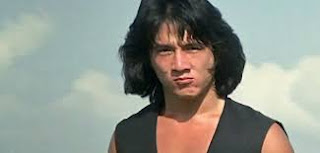
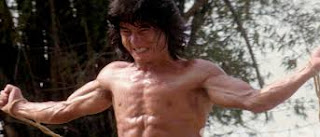
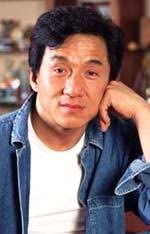



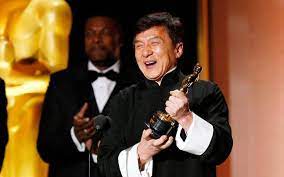
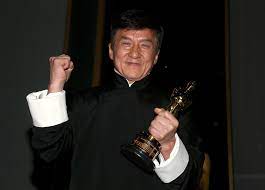


No comments:
Post a Comment
Hi, Welcome to my Blog (Farhan Zia)
I hope you liked my blog. If you like my post then follow my Blog for more interesting Biograpies.
Comment on my Blog. If you have any issues. I will try to solve it.
Thank you!